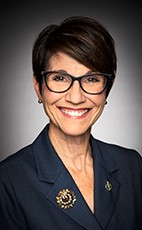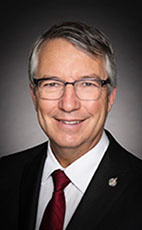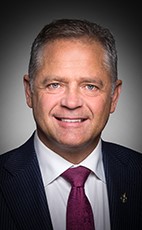Briefing binder created for the Deputy Minister of Finance on the occasion of his appearance before the House of Commons Standing Committee on Public Accounts on January 26, 2021 on the study: Briefing with the Deputy Minister of Finance
Examination of the 2020 Public Accounts of Canada
January 26, 2021 11:00 AM – 1:00PM
Table of Contents
- PACP Overview & Bios
- Parliamentary Environment Analysis
- Appearing at Committee: PACP
- Finance Canada Response to PACP Undertakings
Study: Report 3, Taxation of E-Commerce, of the 2019 Spring Reports of the Auditor General of Canada- November 17, 2020 (completed)
- December 3, 2020 (with MINO)
- Auditor General of Canada
- Comptroller General of Canada
Master Overview of the Committee
Standing Committee on Public Accounts (PACP)
Mandate of the Committee
When the Speaker tables a report by the Auditor General in the House of Commons, it is automatically referred to the Public Accounts Committee. The Committee selects the chapters of the report it wants to study and calls the Auditor General and senior public servants from the audited organizations to appear before it to respond to the Office of the Auditor General’s findings. The Committee also reviews the federal government’s consolidated financial statements – the Public Accounts of Canada – and examines financial and/or accounting shortcomings raised by the Auditor General. At the conclusion of a study, the Committee may present a report to the House of Commons that includes recommendations to the government for improvements in administrative and financial practices and controls of federal departments and agencies.
Government policy, and the extent to which policy objectives are achieved, are generally not examined by the Public Accounts Committee. Instead, the Committee focuses on government administration – the economy and efficiency of program delivery as well as the adherence to government policies, directives and standards. The Committee seeks to hold the government to account for effective public administration and due regard for public funds.
Pursuant to Standing Order 108(3) of the House of Commons, the mandate of the Standing Committee on Public Accounts is to review and report on:
- The Public Accounts of Canada;
- All reports of the Auditor General of Canada;
- The Office of the Auditor General’s Departmental Plan and Departmental Results Report; and,
- Any other matter that the House of Commons shall, from time to time, refer to the Committee.
|
The Committee also reviews:
|
Other Responsibilities:
|
Committee Members
Chair
Conservative
Carlton Trail—Eagle Creek
PACP Member & Chair since Oct 2020
Vice-Chair
Liberal
Guelph
PACP Member & Vice-Chair since Feb 2020
Bloc Québécois
Rimouski-Neigette—Témiscouata—Les Basques
PACP Member & Vice-Chair since Feb 2020 Public Accounts Critic
Members
Conservative
Mégantic—L'Érable
PACP Member since Oct 2020
TBS Critic
Conservative
Northumberland—Peterborough South
PACP Member since October 2020
National Revenue Critic
Conservative
Calgary Confederation
PACP Member since October 2020
New Democratic Party
Hamilton Centre
PACP Member since Feb 2020
TBS Critic
Liberal
Kings—Hants
PACP Member since Feb 2020
Liberal
Hull—Alymer
PACP Member since May 2019
Parliamentary Secretary TBS & Digital Government
Liberal
Vaughan—Woodbridge
PACP Member since Feb 2020
Liberal
Scarborough—Agincourt
PACP Member since Jan 2018
Kelly Block (Saskatchewan - Carlton Trail—Eagle Creek)
Conservative
Chair
- Elected as the Member of Parliament in 2015 for Carlton Trail—Eagle Creek, previously for Saskatoon—Rosetown—Biggar from 2008-2015
- Served as vice-chair on the Standing Committee on Transport, Infrastructure and Communities in the 42nd Parliament.
- Member of the Liaison Standing Committee.
- Previous member of the Standing Committee of Government Operations and Estimates in the 43rd and 41st Parliament, the Standing Committee of Finance in the 40th Parliament.
- Served as the Opposition critic for Public Services and Procurement Canada (appointed by Andrew Scheer).
- Prior to her election, Mrs. Block served two terms as the first female mayor of Waldheim, Saskatchewan, as chairperson of the Gabriel Springs Health District, and was awarded the Maclean's Parliamentarian of the Year – Rising Star – Award in June 2010.
Lloyd Longfield (Ontario—Guelph)
Liberal
First Vice-Chair

- Elected as the Member of Parliament for the riding of Guelph in 2015.
- Former member of the Public Accounts Committee (PACP) in the 43rd Parliament and is a standing Member of the Environment and Sustainable Development Committee (ENVI).
- Former Executive Director of the Guelph Chamber of Commerce, and former business executive.
Maxime Blanchette-Joncas (Québec—Rimouski-Neigette – Témiscouata – Les Basques)
Bloc Québécois
Second vice-chair

- Elected as the Member of Parliament for Rimouski-Neigette—Témiscouata—Les Basques in the 2019 federal election.
- BQ Critic for Public Accounts.
- Preceded in his riding by Guy Caron who served as the leader of the NDP from 2017 to 2019.
- Business Administration graduate from the University of Quebec in Rimouski and former administrative officer at the Business Development Bank of Canada.
- Was regional president of the Youth Forum of the Bloc Québécois.
Luc Berthold (Mégantic—L'Érable)
Conservative
Member

- Elected as the Member of Parliament for Mégantic—L'Érable in 2015.
- Critic for TBS.
- Previously the Vice-Chair of the Standing Committee on Transport, Infrastructure and Communities, and the Standing Committee on Agriculture and Agri-Food.
- Prior to his election, Mr. Berthold was Nathalie Normandeau’s Political Assistant, and communications advisor for the Leader of the Official Opposition in 1999, the Interim Director of communications for Quebec’s Liberal Party in 2006, and worked as a speaker, coach and gave leadership training sessions.
Phillip Lawrence (Northumberland—Peterborough South)
Conservative
Member

- Elected as the Member of Parliament for the riding of Northumberland—Peterborough South in the 2019 federal election.
- Shadow Minister of National Revenue.
- Former member of Standing Committee of Justice and Human Rights.
- Prior to his election, Mr. Lawrence received his BA from Brock University in Political Science, he attended Osgoode Hall Law School and the Schulich School of business to obtain his law degree and MBA, and volunteered at the Financial Planning Standards Council.
Len Webber (Calgary Confederation)
Conservative
Member

- Elected as the Member of Parliament for the riding of Calgary Confederation in 2015.
- Former Vice-Chair of the Standing Committee on Health in the 42nd Parliament.
- Previously a member on the Standing Committee on Health, the Subcommittee on Sports-Related Concussions in Canada of the Standing Committee on Health and the Subcommittee on Agenda and Procedure of the Standing Committee on Health.
- Prior to his election, Mr. Webber was a Member of the Legislative Assembly of Alberta, representing the constituency of Calgary-Foothills from 2004 to 2014, work as an apprentice electrician and managed his own contracting company for 10 years, and served as vice president and director of the Webber Academy, a private, non-profit school in southwest Calgary for children from junior kindergarten to grade 12 founded by his father.
Matthew Green (Ontario—Hamilton Centre)
NDP
Member

- Elected as the Member of Parliament foe Hamilton Centre in the 2019 federal election in the riding formerly held by NDP MP David Christopherson.
- NDP Critic for National Revenue/CRA, Public Services and Procurement.
- Former Councilor for the City of Hamilton (2014 to 2018).
- Member of the House of Commons Standing Committee on Public Accounts (PACP), the Standing Committee on Government Operations and Estimates (OGGO), and the Subcommittee on Agenda and Procedure of the Standing Committee on Government Operations and Estimates.
- Member of the Canada-Africa Parliamentary Association (CAAF) and the Canadian Section of ParlAmericas (CPAM).
Kody Blois (Kings—Hants)
Liberal
Member

- Elected as the Member of Parliament for the riding of Kings—Hants in the 2019 federal election, in the riding formerly held by former TBS President Scott Brison.
- Current member of the Standing Committee for Agriculture and Agri-Food, and the Subcommittee on Agenda and Procedure of the Standing Committee on Agriculture and Agri-Food.
- Former member of the Standing Committee for Agriculture and Agri-Food, and the Standing Committee on Public Accounts.
- Blois completed degrees in commerce, law, and public administration - which sparked his interest in serving his community.
Greg Fergus (Hull—Alymer)
Liberal
Member
Parliamentary Secretary to the President of the Treasury Board and Minister of Digital Government

- Elected as the Member of Parliament for the riding of Hull—Aylmer in 2015.
- Member of the Standing Committee on Access to Information, Privacy and Ethics.
- Former member of the Standing Committee on Finance, and the Standing Committee on Public Accounts.
- Current and Former Parliamentary Secretary to the President of the Treasury Board and Minister of Digital Government. Former Parliamentary Secretary to the Minister of Innovation, Science and Economic Development.
- Former National Director of the Liberal Party of Canada and former political staffer in various Ministerial offices.
Francesco Sorbara (Vaughn—Woodbridge)
Liberal
Member

- Elected as the Member of Parliament for the riding of Vaughan—Woodbridge in 2015.
- Member of the Standing Committee on Access to Information, Privacy and Ethics.
- Former member of the Standing Committee on Finance, as well as the Subcommittee on Agenda and Procedure of the Standing Committee on Finance, and the Standing Committee on Public Accounts.
- Parliamentary Secretary to the Minister of National Revenue.
- Sorbara is a chartered financial analyst and worked in the global financial markets for nearly 20 years in both Canada and the United States for Scotiabank, JPMorgan Chase, and global credit rating agency DBRS.
Jean Yip (Scarborough—Agincourt)
Liberal
Member

- First elected in a by-election on December 11, 2017 as the Member of Parliament for the riding of Scarborough—Agincourt. Elected in 2019 as the Member of Parliament for the riding of Scarborough—Agincourt.
- Current member of the Special Committee on Canada-China Relations.
- Former member of the Public Accounts committee, and the Government Operations and Estimates Committee.
Parliamentary Environment Analysis
Standing Committee on Public Accounts (PACP)
Background
The purpose of this note is to provide an overview of Finance-related issues and party positions regarding the Public Accounts of Canada and related topics, which may be raised during the Deputy Minister’s January 26, 2021 appearance before the House of Commons Standing Committee on Public Accounts (PACP).
In addition to the topics identified below, it is expected that MPs from all parties will ask questions of officials regarding the deficit and its financial impacts, clarification or explanations on the Fall Economic Statement, and proposed spending measures, specifically regarding the Auditor General’s funds. It is also important to note that there may be questions slightly beyond the scope of public accounts that are related to the Department of Finance or the Deputy Minister specifically.
For further context, on November 17, and December 4, 2020, the Committee met in order to discuss the report of the Auditor General of Canada on the taxation of e-commerce, highlighting the rise in e-commerce, inequities between Canadian and foreign sellers as well as actions to remedy these issues. Members of the Committee asked the former Deputy Minister and other officials for precisions on issues such as legislative action, the methodology used to calculate the tax gap for e-commerce, the impact of additional taxes, and the responsibility of each institution in regards to e-commerce taxation.
Conservative Party (CPC)
Numerous CPC MPs have expressed concerns regarding the Fall Economic Statement, and questions related to public accounts may shift to include further details on the Government spending plan and debt management. In addition, finance-related questions during Question Period from CPC Members have focused on supply management negotiations, Government accountability, and COVID-19 support. CPC Members have continued to raise concerns regarding the financial impact of COVID on Canadians and businesses, including questions regarding CEWS audits and taxation. During the Committee meeting considering the public accounts of Canada 2018, CPC members asked the former Deputy Minister about details regarding pensions, Phoenix pay concerns, and the ways Government spending can appear in public accounts. In more recent Committee meetings, Mr. Pat Kelly, Mr. Tim Uppal and other CPC MPs inquired about OAG funding and responsibilities, which included discussions on independent funding and other financial mechanisms for the Government to explore. In addition to comments on OAG funding in general, Mr. Philip Lawrence has furthered this line of questioning following the Fall Economic Statement and the funding request addressed within.
*Redacted*
Bloc Québécois (BQ)
During Question Period since Fall 2020, BQ MP Mr. Maxime Blanchette-Joncas has inquired about support for the Auditor General and the tourism sector. The Member has further shown interest in the priorities of the Auditor General during past Committee meetings, inquiring about whether OAG funds could be statutory and permanent. Specifically, at the October 29, 2020 meeting, the Member also touched on the Phoenix pay system and special examinations of Crown Corporations, as well as mechanisms to detect fraud under COVID-19 relief programs. During the November 17 and December 4, 2020 meetings to discuss the report of the Auditor General of Canada on the taxation of e-commerce, wherein the previous Deputy Minister appeared, Mr. Blanchette-Joncas inquired about the legislation needed to adapt the taxation system to current challenges, as well as fiscal equity and support for Quebec.
*Redacted*
New Democratic Party (NDP)
During Question Period, Mr. Matthew Green has focused on questions pertaining to tax loopholes, a wealth tax, and the impact of COVID-19 on Canadians, small businesses, and for-profit long-term care homes. At past committee meetings, Mr. Green has showed concern for OAG resources, inquiring about how secure funding impacts recruitment and other aspect of the Auditor General’s work, such as modernization. In past Committee meetings, directing questions to the former Deputy Minister, NDP Members have inquired about legislative elements of e-commerce, the taxation of web giants, digital broadcasters, and other digital services.
*Redacted*
Liberal Party (LPC)
It is expected that the LPC Members will resort to questions seeking clarification of public accounts, rather than specific topics or issues related to Finance. Regarding past meetings on public accounts, Liberals focused on international development assistance, as well as Government processes, liabilities, and revenue from various means, such as mortgage protections or taxation. Similar to other Committee Members, LPC MPs have inquired about OAG budgetary pressures and responsibilities, as well as independent funding mechanisms. Moving away from questions regarding the Auditor General, Mr. Kody Blois has previously inquired about legislative changes to move Government proposals forward, including how proposals within the Fall Economic Statement work in relation to existing mechanisms.
*Redacted*
Report prepared by: Emily Howe, Parliamentary Assistant, Parliamentary Affairs
Date: January 19, 2021
Standing Committee on Public Accounts
Deputy Minister's Role
- One of the Deputy Minister's fundamental responsibilities is to support the Minister's accountability in Parliament.
- The DM and other public servants appear at committee to answer questions or to provide information on departmental performance that Ministers could not be expected to provide personally due to the level of detail or complexity.
- The DM and other officials also have a special obligation to describe the progress, activities and performance of the department. When asked, Deputy Ministers should personally appear before parliamentary committees to give an account of their stewardship of the department.
- Two committees are especially important for the managerial and administrative aspects of the DM’s responsibilities: the Standing Committee on Public Accounts and the Standing Committee on Government Operations and Estimates.
Source: Guidance for Deputy Ministers, 4. Supporting Ministerial Accountability in Parliament
PACP Overview
PACP examines the Public Accounts and reviews the findings and recommendations contained in the Auditor General's reports to Parliament, including the department's response to recommendations.
Composition and Setting
- 11 MPs (5 Lib, 4 CPC, 1 BQ and 1 NDP). (PACP membership, attached)
- PACP is chaired by CPC MP (Kelly Block, Carlton Trail—Eagle Creek).
- The Chair serves as the presiding officer of the committee and the spokesperson through whom all matters are channeled. The Chair has the power to maintain order and decorum and to decide all questions of order and procedure. The committee Clerk offers procedural advice and assists the Chair in carrying out her responsibilities.
- The Parliamentary Secretary to the President of the Treasury Board sits on the Committee (Greg Fergus, Hull—Aylmer), and represents the Government's interests.
Overview
Meeting Proceedings
- Typically, meetings begin with witnesses opening remarks, followed by questions from members.
- Committee members may put any question to witnesses; relevance to the issue before the committee being the only requirement (i.e., within the scope of the study).
- Witnesses must answer all questions. Public servants must balance the obligation to respond against their role in providing confidential advice to their Ministers.
- Question rounds are timed and asked in a specific pre-determined order:
| First Round | Second and Subsequent Rounds | |
|---|---|---|
6 minutes each:
|
|
5 minutes 5 minutes 2.5 minutes 2.5 minutes 5 minutes 5 minutes |
Appearing Before Committee
Questions and Answers
- Members of the committee should be addressed through the Chair. For example, “Thank you Mr. Chair. In response to the member’s question…”.
- Public servants implement and administer Government policy.
- Officials may give explanations in response to questions having to do with complex policy matters, but they do not defend policy or engage in debate as to policy alternatives. In other matters, principally those having to do with the administration of the department and its programs, officials answer directly on behalf of their Ministers. Again the answers should be limited to explanations.
NOTE: Parliamentary Privilege
- Committee meetings are part of the proceedings of Parliament. Witnesses are protected by parliamentary privilege. Nothing said by a witness in his or her official testimony before a committee, may be used in a court of law. This immunity no longer applies if the same testimony is repeated publicly outside a parliamentary meeting.
Appearing Before Committees (cont’d)
Binder and Supporting Materials
- All supporting materials used at Committee must be fit for public consumption and the DM’s binder is subject to proactive publication on the Open Government website within 120-days following the appearance.
- Do not use or refer to any classified information at Committee.
Undertakings (Follow-ups)
- If an official does not have the information available, a written response may be provided to the committee at a later time. (commonly referred to as “undertaking” or follow-up”).
- Officials should not prescribe timelines for when information committed to under a “follow-up” might be provided to Committee, nor should they commit to provide specific information (e.g., timelines on when undertakings will be submitted to the Committee may be beyond their control, and the requested information may not be available or fit for public consumption).
- As such, officials should refrain from being too specific and simply commit to “look into the matter”.
Additional Resources and Reference Material
Committees Practical Guide Ninth Edition (Revised)
Guide for Witnesses Appearing Before House Of Commons Committees
Notes on the Responsibilities of Public Servants in Relation to Parliamentary Committees
Finance Canada Response to Committee Undertaking
November 17, 2020 Appearance before the Standing Committee on Public Accounts on the issue of “Report 3, Taxation of E-Commerce, of the 2019 Spring
Reports of the Auditor General of Canada”
Topic / Question 1:
Mr. Philip Lawrence: Yes.
As sales taxes, generally they are regressive in nature and that they have a greater impact on those with lower incomes. So if in fact we impose a tax or change the legislation for direct remittance of this, it would disproportionately affect the lower and middle classes, is that not correct?
The Chair: A very short question, Mr. Rochon.
Mr. Paul Rochon: Yes. I need to look at that specifically. Of course, we have the GST Low Income Credit to deal specifically with that issue of the incidence of the GST [Inaudible] Canadians.
The Chair: Thank you very much.
Response:
The imposition of the GST/HST on cross-border digital products and services would affect households differently, depending on where they live and which digital products and services they buy. For example, some households may not purchase any streaming services at all, or may only purchase Canadian-based streaming services. Others may subscribe to several non-resident based services.
As part of the Fall Economic Statement tabled on November 30, 2020, the government proposed that foreign-based vendors selling digital products or services to consumers in Canada be required to register for, collect and remit the GST/HST on their taxable sales to Canadian consumers, effective July 1, 2021.
At a very high level, we estimate that applying the 5% federal portion of the GST/HST to digital goods and services purchased from non-resident vendors will raise some $243 million the first full year of application, in 2022-23. With about 15 million households in Canada, this translates into an incremental federal GST cost of about $16 per household in that year.
There are no regularly published data on the consumption of digital goods and services by income group. The most recent study we are aware of was published by Statistics Canada (Digital Economy, released August 29, 2018).
- In the case of music downloads and streaming services, Statistics Canada reports that the annual average spending in 2018 was $94 for individuals with income less than $40,000 and $156 for those with income greater than $100,000. If all of this spending were subject to the 5% federal portion of the GST/HST, then it would result in an additional annual cost of about $4.70 for lower income individuals and $7.80 for higher income individuals.
- In the case of video downloads and streaming services, Statistics Canada reports that the annual average spending in 2018 was $136 for individuals with income less than $40,000 and $193 for those with income greater than $100,000. If all of this spending were subject to the 5% federal portion of the GST/HST, then it would result in an additional annual cost of about $6.80 for lower income individuals and $9.70 for higher income individuals.
Some Canadians may be more affected by the proposal than others given their lower ability to pay taxes. For low- and modest-income Canadians, the GST Credit provides about $5 billion in annual assistance to help offset the federal sales tax burden they may face. For example, a low-income family of four would receive a GST Credit of up to about $900 annually. This would cover the federal 5% GST on the purchase of up to $18,000 of GST/HST taxable goods and services.
November 17, 2020 Appearance before the Standing Committee on Public Accounts on the issue of “Report 3, Taxation of E-Commerce, of the 2019 Spring
Reports of the Auditor General of Canada”
Topic / Question 2:
M. Maxime Blanchette-Joncas: Merci, madame la présidente.
Ma question va s'adresser à M. Rochon, sous-ministre des Finances.
Selon le Bureau du vérificateur général, en 2017, le gouvernement fédéral aurait subi 169 millions de dollars de pertes de recettes de TPS sur les produits et les services numériques vendus de l'étranger au Canada. On y affirme que vous aviez calculé une estimation de cette perte, mais que vous ne l'aviez pas publiée. Pourriez-vous nous faire part de l'estimation des pertes que vous auriez estimées?
M. Paul Rochon: Je vais demander à mon collègue, M. Marsland, de répondre à cette question. [English]
Mr. Andrew Marsland (Senior Assistant Deputy Minister, Tax Policy Branch, Department of Finance): Thank you. I guess, like any estimate it depends somewhat on the definition of what you're dealing. The Auditor General did mention a figure in her opening remarks. I guess my sense is that is roughly about the GST at play in relation to the digital services that we're discussing today. [Français]
M. Maxime Blanchette-Joncas: Auriez-vous un chiffre précis de l'estimation, une valeur monétaire pour les pertes qui auraient pu être subies?
[English]
Mr. Andrew Marsland: I would have to get back to the committee with a specific figure.
[Français]
M. Maxime Blanchette-Joncas: Je vous remercie.
Response:
As part of the Fall Economic Statement tabled on November 30, 2020, the government proposed that foreign-based vendors selling digital products or services to consumers in Canada be required to register for, collect and remit the GST/HST on their taxable sales to Canadian consumers, effective July 1, 2021.
We estimate that applying the 5% federal GST to digital goods and services purchased from non-resident vendors would have the projected federal revenue impact set out in the following table.
| 2021 | 2022 | 2023 | 2024 | 2025 | 2026 | Total |
|---|---|---|---|---|---|---|
| – | 166 | 243 | 257 | 267 | 282 | 1,215 |
| Note: A "–" indicates an amount less than $500,000. Assumed coming into force date of July 1, 2021. | ||||||
December 3, 2020 Appearance before the Standing Committee on Public Accounts on the issue of “Taxation of E-Commerce, of the 2019 Spring Reports of the Auditor General of Canada”
Topic / Question:
M. Luc Berthold: Monsieur Rochon, dans l'énoncé économique qui nous a été présenté cette semaine, il y a eu des propositions pour taxer les produits. Cependant, vous faites une distinction des produits qui sont entreposés par ces géants du Web.
Avez-vous une analyse du pourcentage de ces produits entreposés au Canada et ceux qui proviennent directement de ces grands fournisseurs qui ne passent pas par des entrepôts au Canada? Combien d'évaluations en pertes de revenu a-ton?
Honte à elle et un peu à moi, ma fille commande sur Internet et nous recevons encore directement des colis de Chine et nous ne payons pas de taxes. Je serai peut-être un des premiers à avoir l'Agence du revenu du Canada chez moi, mais c'est juste pour illustrer à quel point.
Avez-vous des études pouvant nous aider à nous faire un meilleur portrait?
M. Paul Rochon: M. Marsland pourrait répondre à cette question de façon générale.
Andrew?
[English]
Mr. Andrew Marsland: Yes, it's an excellent question. I think it's important to be clear about what the proposal deals with, and it's a particular circumstance where you have a Canadian business, a business that has a presence in Canada, which supplies products on behalf of non-residents, non-registered businesses. In those circumstances, while tax is paid at the border on the customs-declared value of those goods, it probably does not reflect in most cases the retail price. So, effectively, when those transactions are made, perhaps out of a fulfillment warehouse in Canada, they're technically and legally sales by the non-resident fulfilled by someone with a presence in Canada. What the proposal is to do is make sure that the tax applies on the final retail price—as it should—of those products.
So, that's the proposal. It essentially addresses a weakness in the system that has arisen with the growth of that business.
We do provide estimates in the fall economic statement of the expected revenue pick-up associated with that measure
Mr. Luc Berthold: Mr. Marsland? I'm sorry—
The Chair: I'm sorry, Mr. Berthold. Your time is up.
Mr. Luc Berthold: Ms. Chair, just for you, could I ask for a written answer about this, just a general portrait of this situation, please?
Response:
Non-resident vendors may sell goods to Canadians and ship these goods by mail or courier from outside of Canada directly to purchasers in Canada. These goods may be sold by non-resident vendors through digital platforms, also known as online marketplaces, or by non-resident vendors through their own websites.
With respect to such sales, the Canada Border Services Agency (CBSA) is responsible for assessing applicable duties and taxes on the goods when they are imported into Canada, including when imported through the postal and courier streams. The CBSA is also responsible for administering the Courier Low Value Shipments Program, which provides for streamlined reporting, release and accounting procedures for certain goods that are transported by courier.
- The CBSA is responsible for accounting for goods imported into Canada. According to the CBSA, $9.2 billion of goods were imported through the courier stream in 2019-20. These courier imports include commercial goods, as well as goods sold to consumers. The Department of Finance Canada is not aware of any data on the value of goods shipped from outside Canada directly to consumers in Canada.
Non-resident vendors may also sell goods to Canadians through fulfillment warehouses in Canada. These are warehouses that non-resident vendors use to store goods in Canada and make deliveries to Canadians in a timely way.
In the case of such goods, applicable duties and taxes are levied and collected by the CBSA at the border on the value of the goods that are imported into Canada for the purpose of being stored in fulfillment warehouses and subsequently sold to Canadians. Although these goods are situated in Canada at the time of sale, there is generally no requirement under the current Goods and Services Tax/Harmonized Sales Tax (GST/HST) rules for the non-resident vendor, or digital platform facilitating the sale, to collect or remit the GST/HST when the goods are subsequently sold to purchasers in Canada. This means that the difference between the value of the goods at the time of importation and the final price paid escapes the GST/HST.
- The Department of Finance Canada estimates that the value of goods sold by non-residents through fulfillment warehouses in Canada was about $3.0 billion in 2019-20.
To help ensure greater fairness in the tax system, the Government of Canada proposes to apply the GST/HST on all sales to Canadians of goods that are located in fulfillment warehouses in Canada. Under this proposal, the GST/HST will be required to be collected and remitted by either the non-resident vendor or the digital platform that facilitates the sale.
- It is estimated that this measure will raise $275 million in revenue during the first full fiscal year it is in effect, in 2022-23, rising to $415 million by the fourth year
Auditor General of Canada
Karen Hogan
|
Karen Hogan was appointed Auditor General of Canada in June 2020. Karen Hogan holds a bachelor’s degree and graduate diploma in accounting from Concordia University in Montréal. Fully bilingual, she is a member of the Ordre des comptables professionnels agréés du Québec and the Chartered Professional Accountants of Ontario. She has over 25 years of professional experience in accounting and auditing. |

|
|
Ms. Hogan began her career in the private sector, working first as an auditor at a Montréal-based accounting firm and then as a manager at another private firm in Thunder Bay and Ottawa. She joined the Office of the Auditor General of Canada in 2006, and has served as Assistant Auditor General since January 2019. During her time at the Office of the Auditor General, Ms. Hogan has helped shape organizational change and strategic direction. Her work has included leading the audit of the consolidated financial statements of the Government of Canada, and contributing to the delivery of a new report to help Parliamentarians and Canadians understand complex financial matters and the importance of financial audits for Canada. Ms. Hogan also contributed to the development and delivery of a new talent management strategy for the Office. She supports standard setting in Canada as a member of the Public Sector Accounting Discussion Group. Outside of work, in addition to spending time with her husband and two children, Ms. Hogan is also actively involved in her community, serves on the board of directors of a not-for-profit organization, and supports competitive swimming as a certified swim official. |
|
Comptroller General of Canada
Roch Huppé
|
Roch Huppé was appointed Comptroller General of Canada effective October 23, 2017. As Comptroller General, he is responsible for government-wide direction and leadership for financial management, internal audit, federal assets and acquired services (project management). He also leads the Financial Management Transformation initiative within the Government of Canada. |

|
|
Mr. Huppé entered the public service in 1992 when he joined Global Affairs Canada and where he held various positions within the Financial Services Division. Prior to being appointed Comptroller General, he occupied the role of Chief Financial Officer and Assistant Commissioner, Finance and Administration Branch at the Canada Revenue Agency. He has also been the Chief Financial Officer at Fisheries and Oceans Canada, where he ensured sound financial management and provided leadership on all corporate planning, risk management and evaluation functions. Mr. Huppé holds a bachelor's degree in Finance from the Université du Québec and a master's in Public Administration from l'École nationale d'administration publique de Gatineau. He is also a Chartered Professional Accountant (CPA). He also has the designation of "Fellow to the Ordre des comptables professionnels agréés du Québec," which is an honour awarded to CPAs who bring distinction to the accounting profession and serve as role models to others through their outstanding career achievements and contributions to the community. |
|
Page details
- Date modified: